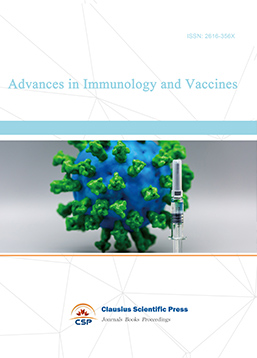Effect of Anshen Dingzhi Wan Combined with Transcranial Magnetic Stimulation on Mental Retardation of Heart-Gallbladder Qi-Deficiency Type
DOI: 10.23977/medsc.2023.040318 | Downloads: 15 | Views: 1265
Author(s)
Wenhao Li 1, Yutang Liu 2
Affiliation(s)
1 Shaanxi University of Chinese Medicine, Xianyang, China
2 Xi'an Chinese Medicine Encephalopathy Hospital Affiliated to Shaanxi University of Chinese Medicine, Xi'an, China
Corresponding Author
Yutang LiuABSTRACT
The objective of this paper is to observe the curative effect of Anshen Dingzhi Wan combined with repeated transcranial magnetic stimulation on mental retardation of heart-gallbladder Qi-deficiency type. The methods of this paper is sixty enrolled children were randomly divided into treatment group and control group with 30 cases each. The treatment group was given Anshen Dingzhi Wan repeated transcranial magnetic stimulation therapy and rehabilitation training, while the control group was given rehabilitation training only. The Chinese revised Wechsler Intelligence Scale for infants and Children was used for blind assessment of the intelligence level of the children in the two groups, and then the efficacy was compared, and the increase rate of IQ score was calculated according to the Nimodipine method. The results of this paper is Anshen Dingzhi Wan was effective in the treatment of mental retardation of heart-gallbladder Qi-deficiency type. The clinical efficacy of the treatment group was far better than that of the control group, and the difference between the treatment group and the control group was statistically significant (P < 0. 05). The conclusion of this paper is Anshen Dingzhi Wan combined with repeated transcranial magnetic stimulation has significant effect on mental retardation of heart and gallbladder Qi deficiency type and low side effects.
KEYWORDS
Anshen Dingzhi Wan, transcranial magnetic stimulation, heart-gallbladder Qi-deficiency, mental retardation effect observationCITE THIS PAPER
Wenhao Li, Yutang Liu, Effect of Anshen Dingzhi Wan Combined with Transcranial Magnetic Stimulation on Mental Retardation of Heart-Gallbladder Qi-Deficiency Type. MEDS Clinical Medicine (2023) Vol. 4: 131-136. DOI: http://dx.doi.org/10.23977/medsc.2023.040318.
REFERENCES
[1] Chen Suzhen. Analysis of etiological characteristics and nursing measures of children with mental retardation [J]. Chinese Journal of Health Standards Management, 2019, 10 (7):101-104.
[2] Yang Pu, Gui Baoheng, Wu Lingqian. Etiology and diagnosis of mental retardation [J]. Chinese Journal of Pediatrics, 2015, 17(6):543-548.
[3] Hu Yamei, Jiang Zaifang. Zhu Futang Practical Pediatrics [M]. 7th Ed. Beijing: People's Medical Publishing House, 2005:1894-1895.
[4] Gmitrowicz A, Kucharska A. Developmental disorders in the fourth edition of the American classification: diagnostic and statistical manual of mental disorders (DSM IV-optional book) [J]. Psychiatr Pol, 1994, 28(5): 509-521.
[5] China Association of Traditional Chinese Medicine. Expert Consensus on TCM Clinical Diagnosis and Treatment of Five retardations—Language Delay (Mental Retardation), (Issue No. : GS/CACM258-2019)
[6] Zhao Ningxia, Liu Yutang, Song Hujie. Effect of nourishing Yin and Improving Yang on 30 cases of mental retardation induced by Fengyang Disturbance [J]. World Journal of Integrated Traditional Chinese and Western Medicine, 2015, 10 (7): 957.
[7] Qing Dynasty• Cheng Guopeng. Medical insight [M]. Beijing: People's Medical Publishing House, 2006:161.
[8] Liu Ye, Shen Li. Application and research overview of Anshen Dingzhi Wan in treating delirium [J]. Bulletin of Traditional Chinese Medicine 2022, 21(04):35-37.
[9] Wang Yusheng, Deng Wenlong, Xue Chunsheng. Pharmacology and application of Traditional Chinese Medicine [M]. 2nd Ed. Beijing: People's Medical Publishing House, 1998:268, 931.
[10] Ran Xuefeng. Lecture Notes of Ran Xuefeng Materia Medica [M]. Beijing: China Traditional Chinese Medicine Press, 2016: 3-4.
[11] Lefaucheur J P. Transcranial magnetic stimulation [J]. Hand-book of Clinical Neurology, 2019, 160:559.
[12] Song Xiaodong, Wang Min, Su Qiang. Research progress of repetitive transcranial magnetic stimulation for treatment of nervous system diseases [J]. Journal of Shandong First Medical University (Shandong Academy of Medical Sciences), 2022, 43(8):635-640.
| Downloads: | 10301 |
|---|---|
| Visits: | 781868 |
Sponsors, Associates, and Links
-
Journal of Neurobiology and Genetics

-
Medical Imaging and Nuclear Medicine

-
Bacterial Genetics and Ecology

-
Transactions on Cancer

-
Journal of Biophysics and Ecology

-
Journal of Animal Science and Veterinary

-
Academic Journal of Biochemistry and Molecular Biology

-
Transactions on Cell and Developmental Biology

-
Rehabilitation Engineering & Assistive Technology

-
Orthopaedics and Sports Medicine

-
Hematology and Stem Cell

-
Journal of Intelligent Informatics and Biomedical Engineering

-
MEDS Basic Medicine

-
MEDS Stomatology

-
MEDS Public Health and Preventive Medicine

-
MEDS Chinese Medicine

-
Journal of Enzyme Engineering

-
Advances in Industrial Pharmacy and Pharmaceutical Sciences

-
Bacteriology and Microbiology

-
Advances in Physiology and Pathophysiology

-
Journal of Vision and Ophthalmology

-
Frontiers of Obstetrics and Gynecology

-
Digestive Disease and Diabetes

-
Advances in Immunology and Vaccines

-
Nanomedicine and Drug Delivery

-
Cardiology and Vascular System

-
Pediatrics and Child Health

-
Journal of Reproductive Medicine and Contraception

-
Journal of Respiratory and Lung Disease

-
Journal of Bioinformatics and Biomedicine


 Download as PDF
Download as PDF